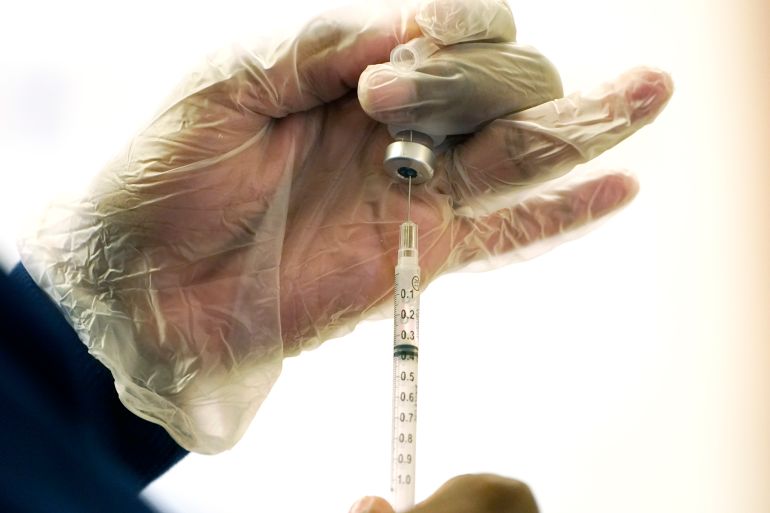New studies have demonstrated that the immune system can recognize and treat cancer tumours thanks to the mass-produced COVID-19 vaccines created using the mRNA model, which were quickly produced during the global pandemic.
A startling pattern emerged from studies in mice and an analysis of cancer patients’ medical histories after receiving mRNA shots for COVID-19 before beginning immunotherapy for cancer treatment.
This week, researchers from the University of Florida and the University of Texas’ MD Anderson Cancer Center presented the findings at the German Congress for Medical Oncology. They also published their findings in Nature, a peer-reviewed journal.
The results, according to the researchers, show that mRNA vaccines not only stop infections but also “wake up” and activate the body’s defense against tumors.
The finding comes at a time when US President Donald Trump’s administration has cut funding for mRNA research.
Why is this being marketed as groundbreaking, then? What does it mean for people who have cancer? And how did this unlikely discovery come about as a result of the COVID-19 pandemic?
An mRNA vaccine is what?
Unlike traditional vaccines, which inject a small strand of genetic code known as “messenger RNA” directly into the body’s cells to activate the immune system’s defense, use weakened or inactive parts of a virus.
The cell interprets this blueprint as an instruction to create a spike protein that resembles the virus and appears on its surface, effectively displaying a red flag that prompts the immune system to launch a defense.
The body then creates antibodies and memory cells trained to recognize and respond to the protein spike if it ever appears again.
How did scientists learn about the association between mRNA and cancer?
This area of research has been ongoing for some time, most recently by paediatric oncologist Elias Sayour, the University of Florida’s Bonnie R. Freeman Professor for Pediatric Oncology Research.
As the world rushed to vaccinate the populace in large numbers, the COVID-19 pandemic presented a unique opportunity to examine the repercussions of mRNA for cancer treatment.
A striking pattern emerged when Sayour’s former student, oncologist Adam Grippin, examined the clinical records of more than 1, 000 patients treated at the MD Anderson Cancer Center between August 2019 and August 2023.
Within 100 days of initiating immunotherapy, those who had the same medical treatment but did not have the vaccine lived significantly longer.

How long did the vaccine last for the vaccine’s use?
If the patient received the vaccine, their median survival rate nearly doubled, increasing from 20.6% to 30.3%.
More remarkable is the improvement in survival in patients with immunologically “cold” tumours, which suggests that the mRNA vaccine appeared to “wake up” the immune system in these harder-to-treat cancers, making “cold” tumors into ones that the immune system could more easily recognize and attack.
The researchers noted that their findings varied depending on a number of variables, including the number of vaccine manufacturers, the dose, and the duration of the immunization.
The researchers also compared the survival rates of a smaller sample of patients receiving immunotherapy for metastatic melanoma, the most advanced skin cancer stage. In the study, 167 patients received mRNA COVID vaccines, compared to 43 who received none.
The median survival time for those who received the vaccine was less than two years. In contrast, the study found that those who were vaccined before starting treatment had not yet reached the median survival point more than three years into the follow-up.
What is the process?
The researchers discovered that mRNA vaccines trigger the body’s defenses by acting as an alarm.
The immune system becomes more alert when the vaccine is administered, increasing its ability to recognize cancer cells that it might otherwise have missed. When these cells are activated, the immune system launches an attack.
However, cancer cells are resilient. They create a protein called PD-L1, which acts as a “hield” for them from the immune system. However, immune checkpoint inhibitors are available that can block this shield.
When the immune system is active and alert, and the cancer’s defenses are weak, Grippin explained, this situation is created when both the vaccine and these drugs are used.
The findings suggest that mRNA vaccines can be used to re-programme immune responses to cancer, despite the researchers’ claims that they are still developing an incomplete understanding of the mechanisms.

What does this mean for people who have cancer?
These observations are preliminary. However, if the study is clinically proven to be accurate, it could have significant effects on cancer treatment.
According to Grippin, “These vaccines have powerful anti-tumour immune responses that are linked to significant increases in cancer patient survival.”
The implications are extraordinary; they could transform oncologic care in its entirety, Sayour said. We could create a better nonspecific vaccine that would essentially be an off-the-shelf, universal cancer vaccine for all cancer patients, to mobilize and reset the immune response.
Grippen, who co-led the study with professor of radiation oncology Steven Lin, announced that his team is launching a Phase 3 clinical trial to verify the study’s initial findings and determine whether COVID mRNA vaccines should be included in patient standard of care.
What results from experiments on mice did scientists discover?
Researchers found that dendritic cells, a type of white blood cell, became more alert when they were injected with an mRNA COVID vaccine directly into a tumour.
When the tumor’s dendritic cells recognized its presence, they released signals that enticed T cells to attack it. This helped some mice stop the cancer from spreading.
There is, however, a significant catch. Not everyone who has cancer-fighting T cells is naturally immune. Some people’s immune systems can identify a tumor as dangerous, but their specific T cells are unable to destroy it.
One reason why some patients respond to immunotherapies, which boost the immune system to fight cancer, but not others.
Source: Aljazeera

Leave a Reply